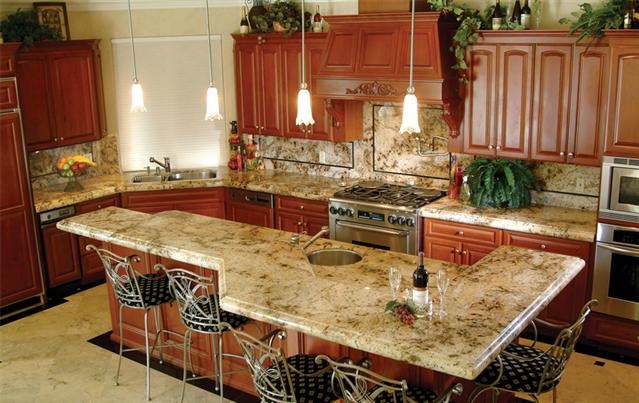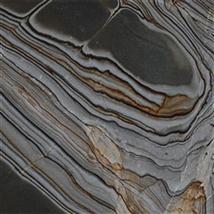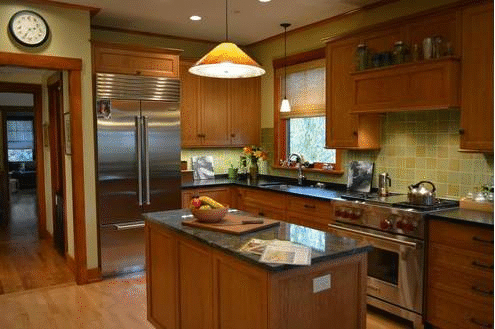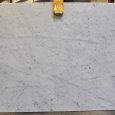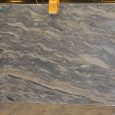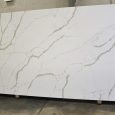It comes as no wonder that natural stone has been regarded as a premium building and decorative material ever since ancient times. Durable, beautiful, and imposing, it has been a symbol of prestige and grandeur in many cultures for thousands of years. Unlike many other antiquated materials and designer solutions, however, it fits in with contemporary style trends as well. Natural stone surfaces in your home or office add unrivaled elegance and appeal to the ambience, creating a lasting impression of prosperity and stability.

There are many essential factors to take into consideration when choosing the best natural stone tiles for your home decor.
The outstanding qualities of natural stone make it an excellent choice for your home décor. However, different types of natural stone have different properties and advantages, so choosing the right slabs (or tiles) for your interior design requires careful consideration. There are a number of key factors to take into account in order to choose the natural stone that will best suit your way of life and aesthetic taste.
Intended Natural Stone Application
The choice of the most appropriate natural stone for your home depends on exactly where you are going to use it. Needless to say, certain types of stone are better suited for some applications than others.
Generally, natural stone is long lasting and easy to maintain, so it can be used for various applications, both inside or outside. Common exterior uses for natural stone include pavers, patios, stepping-stones, walkways, garden benches, and facades. When installed outdoors, the stone will be exposed to the elements, so you need durable material that is unlikely to be damaged by adverse weather conditions and extreme temperature fluctuations.
Indoors, natural stone is widely used for kitchen countertops, bathroom vanities, sinks, showers, islands, walls, floors, entryways, and others. All these areas are typified by concentrated foot traffic, moisture, and high risk of spills and falling objects, so you need easy to maintain stone that is resistant to stains and scratches.
As a rule of thumb:

The type of stone slabs you will choose to decorate your fireplace with will certainly be different the ones you will use around your backyard pool.
- Granite is an excellent choice for kitchen countertops, tabletops, floors, and other heavily used surfaces;
- Marble is popular for floors, countertops, fireplaces, walls, tub decks, and furniture;
- Travertine and limestone are commonly used for wall cladding, interior flooring, and exterior applications like curbing and paving;
- Slate is a popular flooring material that can also be used for kitchen countertops, tabletops, and fireplace facings.
When making your choice, you should also take into consideration the stone’s finish as a highly polished finish, for example, is perfect for a countertop but too slippery for a bathroom floor.
However, every situation is different, so your decision should be determined by your specific needs and preferences, not by general rules.
Your Lifestyle, Needs and Aesthetic Preferences
Before settling on a specific type of natural stone for your home, you need to assess your lifestyle and your needs. If you have a large family, cook on a daily basis, like to have people over, etc., you need durable and easy to maintain surfaces that will not trap dirt or harbor bacteria growth. On the other hand, if your home sees little traffic and no busy household activities, or if the elegance of your home décor is your primary concern, you will certainly prefer a glamorous look and feel over more practical but simpler surfaces.
What’s more, have in mind that the more delicate and exquisite your chosen natural stone is, the greater care it will require (adequate protection, proper sealing, and regular cleaning).
So, the only way to make an informed decision for your home design is to compare different types of natural stone in terms of aesthetic value, practicality, and cost.
Aesthetic Appeal
Without a doubt, the appearance of the stone will be your first consideration when making your choice. The look and the style you are going for is of primary importance for the overall appeal of your home décor, so natural stone selection is usually based on the unique character of the stone:

Your choice of natural stone should be based on the effect you are looking for.
- Colors – natural stones come in a wide spectrum of beautiful colors that range from soft beiges and pinks, classic black and whites, to golden yellows, rich corals, subtle greens, blues and grays or multi-colors. Generally, darker stones tend to be harder and less prone to staining or discoloration, so they don’t need frequent sealing. However, they easily show water marks, fingerprints and dust and make small spaces to appear even smaller. Lighter colored natural stones, on the other hand, expand small rooms and make them seem larger. Dust and fingerprints aren’t so apparent but lighter stones are easily stained and need to be sealed more frequently. The intended use of the natural stone also comes into play when you are choosing an appropriate color for your home décor – if you are looking for natural stone for your fireplace, for example, the color will be quite different from the color you will use for your bathroom vanities, right?
- Patterns – the distinctive vein pattering also greatly contributes to the unique character of the different types of stone. Marble, for example, has colorful swirls, while granite has a pebbled appearance with flecks of various colors. The naturally varied appearance and rich texture of the stone slabs (or tiles) result in diverse fascinating effects – rustic, casual, warm, inviting, elegant, and many others. You need to determine what effect you are seeking in order to choose the most appropriate natural stone tiles for your home;
- Finishes – natural stone also comes in many different finishes that not only give the surface an interesting appearance, but also result in a unique feel:
– A polished surface has a beautiful, glossy shine and emphasizes the color of the stone. It is typically used for countertops, furniture tops, wall cladding, and flooring;
– A brushed or antiquated surface has a weathered look simulating natural wear. It is very impressive and widely used for various applications;
– A honed finish can have a matte, flat, or satin appearance. It is generally preferred for floors, stair treads, thresholds and other areas where heavy traffic will wear off a polished finish;
– A leathered finish creates a smooth but textured surface that is easy to maintain and commonly used for natural stone countertops, bathrooms, etc.;
– A flamed finish results in a rough texture and contoured non-slippery surface, so it is very appropriate for outdoor applications.
Other types of natural stone finishes (tumbled, bush hammered, sandblasted, etc.) may be more appropriate for a specific project or certain artistic ideas, so your choice should be based on the impression you are looking for.
Practicality
Despite the importance of the look and style you want to achieve, convenience, durability, and maintenance requirements are also important factors to consider when choosing natural stones for your home.

The natural stone in your home should reflect your lifestyle and your artistic taste.
- Absorption rate – the more porous a stone is, the more prone it will be to staining and cracking;
- Hardness of the stone – harder stones are more resistant to abrasion and softer stones are more susceptible to scratches and dents;
- Grade of the stone – grades reflect the structural quality of the stone in terms of imperfections, such as pits and fissures. Higher grades mean higher resistance to scratching and chipping;
- Thickness of the stone slabs – thicker stones (3cm, or 1 ¼”) are more durable and easier to install, so they are commonly used throughout the home and especially for kitchen applications. Thinner slabs (2cm, or ¾”) provide greater designer options, so they are widely preferred for decorative purposes.
The exact shape and patterns of each slab should also be taken into consideration as these small details mean the difference between plainly visible seams or more inconspicuous ones and allow unique designer solutions.
Financial Considerations
The cost of the material and the cost of the installation are also major factors to take into account when choosing natural stone for your home. It is a good idea to contact local providers and get free estimates for your renovation project before making your final choice.
However, you are advised to hand select the material you like the most and to clearly state your preferences prior to fabrication as the final price will be determined by your specific requirements. Showrooms and home-design centers have lots of samples, so you can choose the material that best suits your needs, preferences, and budget. If you go to a stone yard, you’ll have a choice of local materials, which can add unique character to a custom home. Besides, you will be able to pick out the pieces that will be actually used in your home (which is an advantage since no two slabs are the same) and get an accurate idea of the final cost.
Most natural stones will cost you between $100 and $300 per square foot, including installation.
The Sum and Substance of Natural Stone Selection
It is a fact that all natural stones are extremely beautiful and most of them stand up to a variety of uses. However, each specific type has its own distinct qualities you should be familiar with in order to choose the best natural stone for your home:

Granite countertops have gained much popularity in recent years.
Granite
- Properties – allegedly the most durable natural stone, granite is extremely hard and stunningly beautiful. Its rich colors and distinctive veining result in a high-impact look and unrivaled grandeur. When properly sealed, granite is very resistant to scratches and stains and stands up well to splashes, knife nicks, and other wear and tear. What’s more, granite doesn’t conduct heat and requires very little maintenance which makes it perfect for kitchen countertops. However, you are advised to clean the surface regularly with a specialized stone cleaner and to avoid using harsh or abrasive cleaning products that may ruin the delicate material;
- Applications – natural stone flooring, wall cladding, backsplashes, kitchen countertops, bathroom vanities, fireplace surrounds.
Marble
- Properties – marble has long been praised for its artistic beauty and glorious splendor. The fascinating luminescence and distinctive veining typical of this marvelous natural stone make it very suitable for official settings and stylish environments. However, marble is soft and requires delicate use and greater care, as it is vulnerable to acidic liquids and stains. Even when sealed, marble is susceptible to scratches, cracks and chips, so it is not suitable for high traffic areas and busy homes;
- Applications – natural stone backsplashes, vanities, wall cladding, floors, hearths and mantelpieces.
Slate
- Properties – slate tiles are not only extremely fashionable, but also very durable and resistant to wear and tear. It comes in a wide range of colors with distinctive cleft pattern. The rough texture of slate makes it appealingly contoured and naturally slip resistant, so it is ideal for stone flooring in bathrooms and high traffic areas such as hallways;
- Applications – flooring, wall cladding, bathrooms, halls, patios and pool surrounds (only in areas with mild climate as slate won’t thrive in extreme temperatures and adverse weather conditions).

Travertine creates a high-impact effect when used in a bathroom.
Travertine
- Properties – travertine has a distinct character and comes in gentle creamy colors that result in a neutral feel with a hint of warmth and coziness. It is very porous, so it is usually “honed and filled” to achieve a more refined look and feel. When tumbled or brushed, travertine renders a wind-worn, ancient look that has always been very popular and widely preferred both for indoor and outdoor applications. However, travertine is very susceptible to stains and requires regular sealing;
- Applications – flooring, bathtub surrounds, shower tiles, sinks, moldings, pool surrounds, patio pavers.
Limestone
- Properties – limestone also comes in a variety of natural colors but without distinctive veining. It is not as porous as travertine but it is still easily stained and requires regular sealing. Limestone tiles are quite large which makes them ideal for creating the illusion of space within the home;
- Applications – flooring, wall cladding, pavers and various other outdoor applications.
Sandstone
- Properties – sandstone often features striated patterns and rich colors. Its weathered look makes it quite appealing for various decorative purposes and outdoor applications. Sandstone is very durable but quite susceptible to acidic materials;
- Applications – floor tiles and wall tiles (especially in bathrooms), pavers and pool surrounds.

Common exterior uses for natural stone include pavers, patios, and pool surrounds.
Soapstone
- Properties – typically, soapstone comes in different shades of green, grey and black, that are very rich and warm. This soft stone acquires beautiful patina with time and is quite charming to look at. However, it is very porous and must be sealed with mineral oil to reduce staining;
- Applications – kitchen countertops, vanity tops, fireplace surrounds.
Onyx
- Properties – onyx is distinguished by its translucency and gentle pastel colors. It is usually polished to a high gloss and looks very impressive but it is extremely prone to scratches and requires frequent sealing;
- Applications – mainly bathtub surrounds and vanity tops.
Whichever natural stone you choose for your home décor, remember that proper sealing will prolong its life and will help preserve its original good looks and feel.
It is a good idea to consult experienced professionals who can provide expert guidance for choosing the most suitable natural stones for your particular project before actually purchasing the material.


